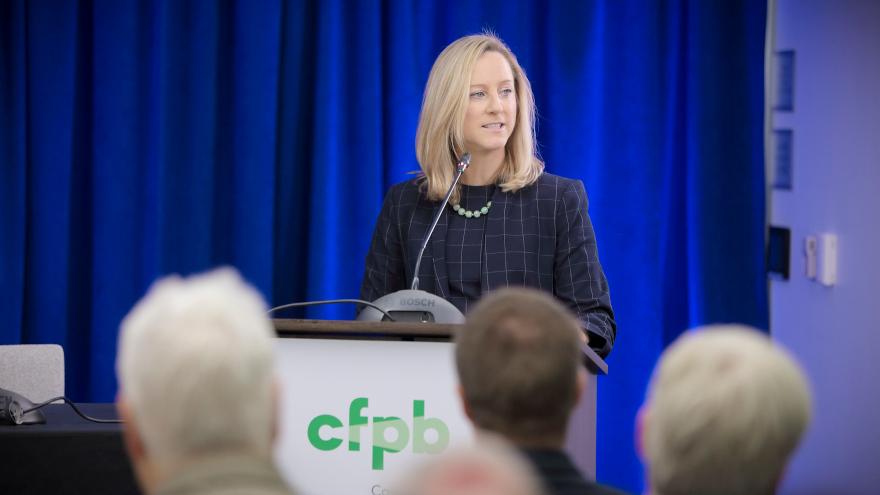CFPB seeks public input to reduce credit discrimination, boost ECOA

Consumer Financial Protection Bureau director Kathleen Kraninger testified during federal hearings hosted by both the House and Senate last week. File photo courtesy of the CFPB.
By subscribing, you agree to receive communications from Auto Remarketing and our partners in accordance with our Privacy Policy. We may share your information with select partners and sponsors who may contact you about their products and services. You may unsubscribe at any time.
WASHINGTON, D.C. –
Along with its director giving testimony to both House and Senate committees, last week also included the Consumer Financial Protection Bureau issuing a request for information (RFI) to seek public input on how best to create a regulatory environment that expands access to credit and ensures that all consumers and communities are protected from discrimination in all aspects of a credit transaction.
The bureau reiterated that the Equal Credit Opportunity Act (ECOA) and Regulation B make it unlawful for any creditor to discriminate against any applicant, with respect to any aspect of a credit transaction on the basis of race, color, religion, national origin, sex, marital status, or age; because all or part of the applicant’s income derives from any public assistance program; or because the applicant has in good faith exercised any right under the Consumer Credit Protection Act.
“The information provided will help the bureau continue to explore ways to address regulatory compliance challenges while fulfilling the bureau’s core mission to prevent unlawful discrimination and foster innovation,” officials said in a news release.
The CFPB added the RFI is in lieu of a symposium the bureau had planned to host on ECOA issues this fall.
To read the RFI, go to this website.
Meanwhile, director Kathleen Kraninger also gave federal lawmakers updates when the Senate Banking Committee and the House Financial Services Committee conducted separate hearings. Kraninger offered details stemming from bureau’s spring 2020 semi-annual report, which included activities from last October through March.
Subscribe to Auto Remarketing to stay informed and stay ahead.
By subscribing, you agree to receive communications from Auto Remarketing and our partners in accordance with our Privacy Policy. We may share your information with select partners and sponsors who may contact you about their products and services. You may unsubscribe at any time.
“Clearly, the COVID-19 pandemic had a profound impact on the bureau’s work during the reporting period, one that will continue well into the future. These remain challenging times facing our nation and the world. Yet the uncertainty and dramatic change underscore the importance of the Bureau’s mission on behalf of American consumers,” Kranginer said.
Kraninger also mentioned that from Jan. 1 through July 26 consumers have submitted more than 270,000 complaints to the bureau and more than 14,000 complaints specifically reference coronavirus.
Each month from March through June also set a new monthly record for complaints, according to the CFPB director.
“Our consumer contact center and our online portal have operated efficiently and effectively throughout the pandemic to take consumer complaints and refer the complaints to companies for response,” Kranginer said.
While many of the developments that happened during the semi-annual report period involved the mortgage space, Kraninger also emphasized a CFPB activity that certainly can involve auto financing — its supervision authority.
“Supervision is the heart of this agency – something underscored by the percentage of our personnel and resources dedicated to conducting exams,” Kraninger said. “I am focused on ensuring we use this tool as effectively and efficiently as possible and that we apply it in a consistent way. Heading trouble off at the pass may not grab big headlines, but it will prevent a lot of headaches for consumers and industry.”
More details about the CFPB’s semi-annual report to Congress can be found here.


